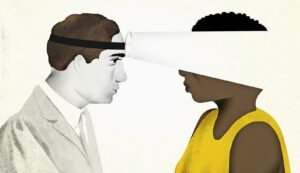
A medical emergency can be a life-altering event in some cases. One would hope that medical staff would be poised and dependable in patient care, but recent events have shown that this is not always true.
African Americans and medical care have a complicated relationship. People of color are much more likely to receive poorer quality medical assistance than others.
On average, Black men and women in the United States face a higher surgical mortality rate than their white counterparts. This data leaves us with one choice; to demand to be taken seriously when seeking medical attention.
Tashonna Ward, a 25-year-old black woman, fled the emergency room after being told she must wait up to six hours to see a doctor for an enlarged heart. She died shortly after. This death could have been prevented by doctors taking her concerns seriously.
Twitter went into a frenzy this past November when a nurse posted a video of herself dancing to the beat of a patient coughing and in obvious distress. Numerous people responded to the original tweet and described their personal ordeals in the medical arena.
Tales of doctors simply not believing what their patient says or behaving unprofessionally were shared by various people. There is a clear pattern of minorities being disregarded by doctors.
Medical faculty that abide by the Hippocratic Oath and turn a blind eye to the concerns of black patients are the hypocritical perpetrators of yet another realm of institutional racism we are confronted with in America.
You wouldn’t have to ask many people to find someone who has been judged or dismissed by a doctor. Not only are we receiving subpar treatment, but the costs associated with going to the emergency room leave many Americans in a financial bind.
African Americans are less likely to have health insurance than other races. Along with the lack of resources to pay for healthcare, there is a lack of dependable doctors to go to. The difficulty with seeking reliable medical care is that people of color often live in areas without local healthcare facilities.
People like Ward are forced to wait long hours without even a guarantee a doctor will see them in a timely manner, and in most tragic and extreme cases, die before even being treated.
Every patient deserves to be listened to, and not mocked. Every patient deserves to be seen by a doctor without fear of being criticized or discriminated against.
Being unable to trust in the quality of care you receive at a hospital is unacceptable in the modern age because black lives are hanging in the balance.